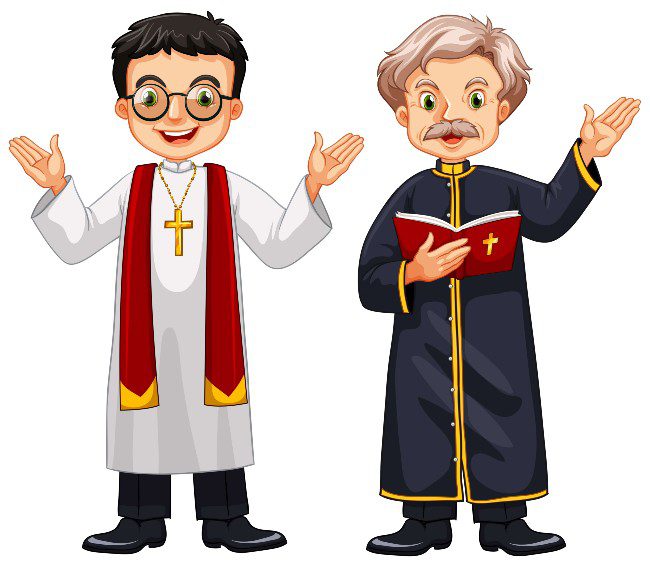Young and upcoming members of the clergy are overwhelmingly “conservative/orthodox,” with almost none of them describing themselves as “progressive.” At least that’s the case–and a big turnaround–among Catholic priests. I suspect that’s also true in other churches.
Among priests ordained in the 1960s, after the liberalizing council Vatican II (1962-1965), nearly 70% describe themselves as either somewhat or very “progressive.” But among priests ordained after 2020, “fewer than 5%”–as I read the graph, just over 1%–considered themselves as “somewhat progressive.” And zero respondents said they were “very progressive.”
Conversely, 85% of the young priests, ordained after 2020, said that they were “conservative/orthodox” or “very conservative/orthodox” theologically. The rest, 14%, described themselves as “middle of the road.”
As the author of the CNA story, Jonah McKeown, says, this shows a “significant divide” between older priests and younger priests. And, of course, the older priests constitute most of the bishops, the Vatican, and the papacy, Pope Francis being 86 years old. But this coming generation of priests heralds a conservative resurgence in American Catholicism.
McKeown says the survey data tallies with other studies and observations. He quotes Father Carter Griffin, the rector of St. John Paul II Seminary in Washington, D.C., who sees this new orthodoxy in seminarians:
“[T]he men coming forward for the priesthood now are men who really love the Lord and love the Church. They believe in her. They believe that he founded her. And so there’s not an instinct at all to believe anything other than what the Church believes, to teach what the Church believes,” Griffin continued.
“I think many of them are reacting to the wreckage of secular materialism, and many of them have seen the effect of that materialism, that secularism, on their peers. They’ve seen people trapped in sin, and they want to make a difference in the world. They want to be people who are helping to bring light and joy and hope back into a world that seems to have lost them.”
A resurgent Catholicism might pose a problem for us Protestants. I remember as a young man who knew only mainline liberal Protestantism, but who had read great Catholic writers such as G. K. Chesterton and Thomas Aquinas, checking out my local Catholic church, only to find it led by guitar-strumming Marxist priests and feminist nuns, with hardly anything of the Catholicism I had been reading about. An undiluted Catholicism might have tempted me, but, knowing what I know now, I am thankful that I didn’t find it.
But, although I can’t quantify it, I have the sense that this phenomenon is also happening outside of Catholicism, among Protestant churches as well.
In my Lutheran circles, the young pastors I know and the young seminarians I am meeting are rock solid theologically and liturgically.
Do those of you from other traditions see that as well?
Is this happening in mainline denominations? (I know a few of their young ministers, and while they are not up to confessional Lutheran standards, they are far more evangelical than what I remember in my day.)
I have argued that a major factor in the secularization of society has been the secularization of the church. Perhaps a new generation of pastors will reverse that.














